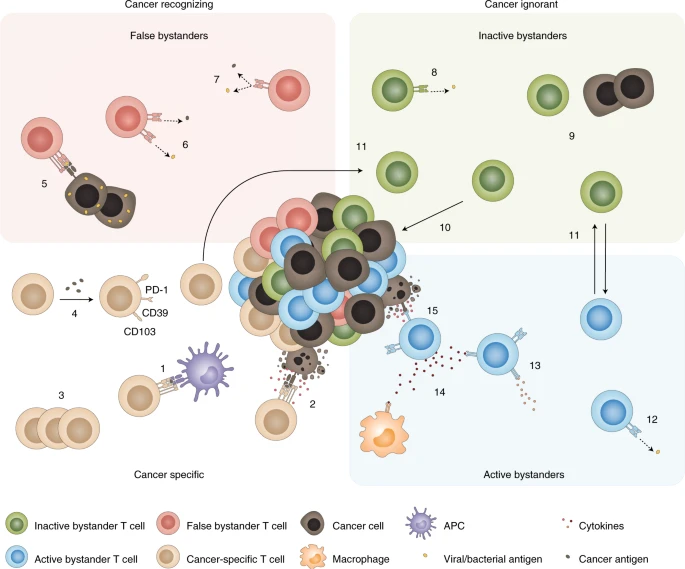
Cancer-specific T cells are required for effective anti-cancer immunity and have a central role in cancer immunotherapy. However, emerging evidence suggests that only a small fraction of tumor-infiltrating T cells are cancer specific, and T cells that recognize cancer-unrelated antigens (so-called ‘bystanders’) are abundant. Although the role of cancer-specific T cells in anti-cancer immunity has been well established, the implications of bystander T cells in tumors are only beginning to be understood. It is becoming increasingly clear that bystander T cells are not a homogeneous group of cells but, instead, they differ in their specificities, their activation states and effector functions. In this Perspective, we discuss recent studies of bystander T cells in tumors, including experimental and computational approaches that enable their identification and functional analysis and viewpoints on how these insights could be used to develop new therapeutic approaches for cancer immunotherapy.